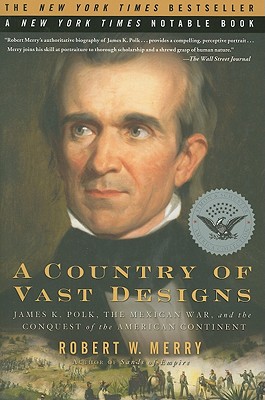
Merry, Robert W.
product information
description
erlooked yet ever-consequential, comes to life in this "compelling, perceptive" (The Wall Street Journal) biography of the 11th President of the United States, Andrew Jackson's protégé, and champion of "manifest destiny." When James K. Polk was elected president in 1844, the United States was locked in a bitter diplomatic struggle with Britain over which country would inherit the rich lands of the Oregon Territory. Texas, not yet part of the Union, was beset by hostile pressures from a more powerful Mexico. The great lands west of Texas--including what would become California, Nevada, Utah, Arizona, and New Mexico--belonged to Mexico. Four years later, when Polk relinquished power, the country had grown by half. Oregon belonged to the United States, as did Texas and all the lands to the west stretching to the Pacific. In bringing this about, Polk expended huge quantities of political capital through bold and often divisive decision making. This is the dramatic narrative of that grand national ambition that went by the name of Manifest Destiny--the idea that it was America's fate to emerge as the greatest power of the Americas, with consolidated territory that stretched from sea to sea and with a capacity to project influence forcefully toward both Europe and Asia. This national dream and ambition turned out to be bigger than any man or any party or ideological outlook that took its place in the national debates of the time. Told through the towering figures of that time--such as the outgoing president John Tyler and Polk's great mentor, Andrew Jackson--A Country of Vast Designs captures the enormity of this national dream and provides profound insight into this era in America's history.
member goods
No member items were found under this heading.
Return Policy
All sales are final
Shipping
No special shipping considerations available.
Shipping fees determined at checkout.







